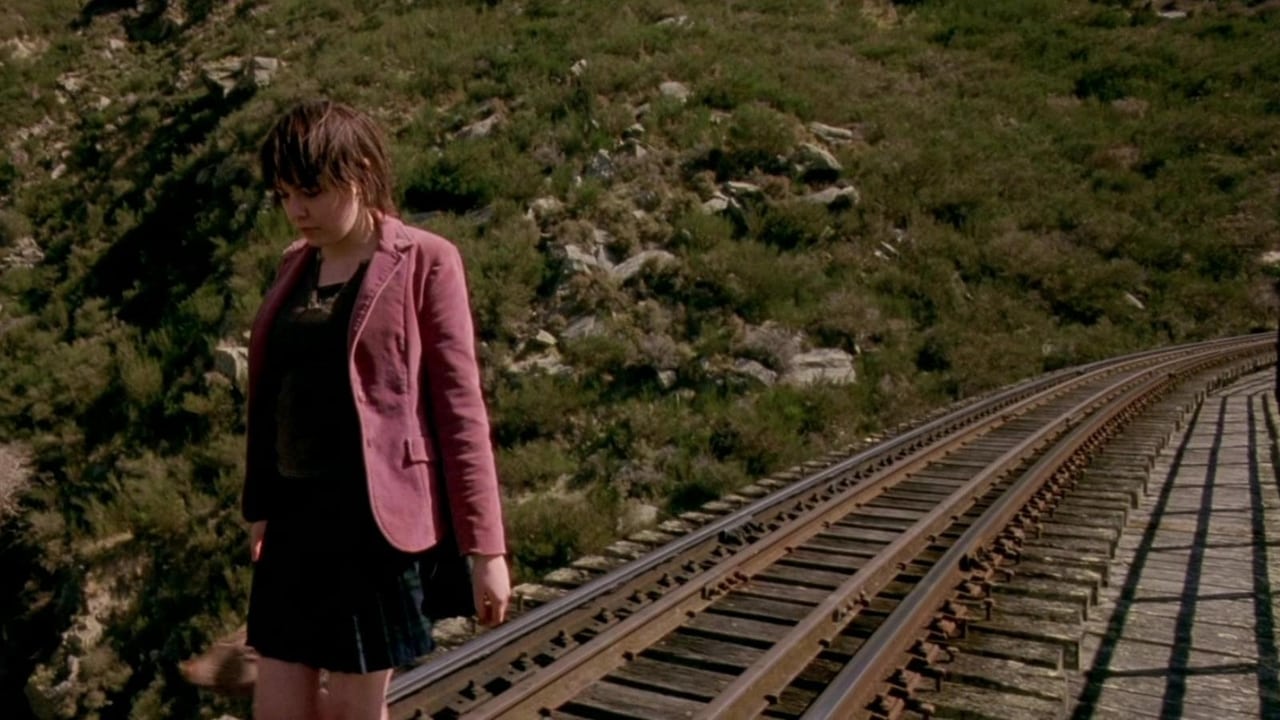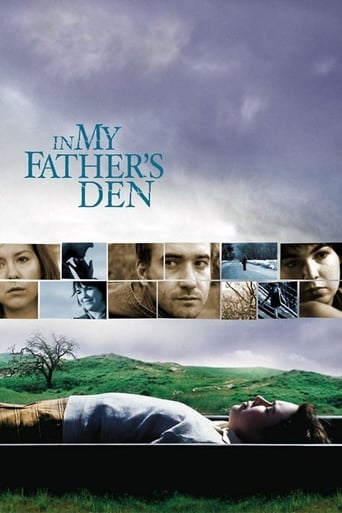

Australia is vital to my life in film. From an American perspective, New Zealand is normally clumped in there as well — something that annoys kiwis to no end. At least in terms of film, they differ: more direct, honest, intimate. Unfortunately, you pretty much have to go to the place to experience their films. Well, I did and found this little gem.I am a student of introspection in film, with one of the more fascinating elements being where that introspection is placed. One end of a spectrum has characters wondering about themselves — the stuff of ordinary drama. Another end has the audience discovering and masticating about what they see and how. In between are not mere continuous stations but "folds" where for instance characters wonder about the nature of how they are being watched.Many kiwi films have a unique take on this. There was one my last trio having to do with magical dairy farming. This is similar in stance, a backward fold.We have an on-screen detective who I can describe broadly as our "filmmaker." He is from the town, left because of some unknown trauma and is now returned. We discover what he does, but in this case, he has knowledge we do not. This trivial twist on the standard form is rather profound.The story involves a teen girl he encounters and strangely befriends. There are events. They are relatively unimportant, but they allow us to engage in this strange inverted discovery. The outer form of the "thriller" is there: a murder, an innocent man — our "detective" — is suspected. There are red herrings. Confusing sexual impulses are thrown in. There is a twist, wholly unexpected but completely sensible. The resolution is typical with flashing policecar beacons calmly arresting the right guy so we know justice will take things from there.But within this form, this inverted discovery is very, very clever. A good piece of writing.There are books involved: the girl who dies is a writer and it is in effect her script we stand on.Our detecting hero is in fact a war photographer. Images — including a photograph not his own, a strange never-explained painting, and a photo of a girl he took — become characters in their own right. The den of the title is a space where key events take place. The camera could have done better with this space, but it does well in making it secret, special, evocative of dangerous unknowns — the place that holds the inner war our hero has been trying to see and convey.(The only really false scene is at the end when our hero strides away from the place, it engulfed in flames behind him. The setup is so trite I cry when I think of it being the last image folks will take away from this. I advise you to stop watching when the Zippo lighter that has failed many times suddenly works.)The images and the writing entwine.The den is notable by being something the father created that was invisible to his wife. She is a thin, pale redhead that we only see in flashes. The redheadedness here is a shorthand for her inner wars which drive the whole thing, and which needs the den apart. She is mirrored by a daughter in law who could have been played by the same actress: identically redheaded and lost.Ted's Evaluation -- 3 of 3: Worth watching.
... View MoreThis film was Brad McGann's debut feature as director, and sadly, as it turned out, his last. The screenplay by McGann uses Maurice Gee's 1972 novel as a starting point but goes off in a different direction. In the book we are aware at the outset that a girl has been found murdered and that her sympathetic teacher is under suspicion. In the film the possibility of a crime does not arise until half-way through. In the book "father" the owner of the den was a nice elderly man who had died many years previously. In the film he has just died, and turns out to have been a lot less nice. In the book Andrew the stitched up pious brother turns out to be a very dangerous person, in the film he is not much more than a fall guy. The book has Paul (Matthew MacFadyen), the principal character as an unknown schoolteacher in an outer suburban school; the film has him as a minor celebrity returning to the scenic rural home of his youth. In both stories, however, he becomes involved with one of his pupils, Celia (Emma Barclay).Does any of this matter to the film's entertainment value? Well, the film is beautifully photographed, and wonderfully acted, yet it ultimately fails to make any sense of the events depicted. Maurice Gee on the other hand explores the dark recesses of his character's minds and his readers get to understand why things have happened the way they have. Character-based thrillers are tricky; there is a trade-off between action and insight. Here we have some interesting characters who somehow have got lost in the plot a mistake not made in Ray Lawrence's "Lantana" for example, although "Jindabyne" ran close to the edge.At the end of the film there is a complete stuff-up the final scene should been the second to last scene. The director did it on purpose, according to the DVD commentary, through a reluctance to bump off his favorite character.This film was Emma Barclay's first. She has gone on to a real triumph in "Suburban Mayhem" but you can see the talent here already. Matthew MacFadyen as Paul was doing his first feature too, though he has had considerable TV experience ("Spooks"). His English accent is a bit out of place in the land of the long lost vowel but the moodiness is right on. Miranda Otto as Andrew's distracted wife was like a sleepwalker but that was what the part requires. Colin Moy as Andrew was very impressive his animus towards Paul was palpable even before he opened his mouth.Maurice Gee set his novel in semi-suburban West Auckland in the late sixties and the film-makers have used present-day Central Otago, mostly in and around Alexandra, as their setting. This is fair enough, and Central Otago is a very photogenic part of NZ, but it does tend to overplay the return of the prodigal element. Again, Maurice Gee makes it clear that the semi-rural past that Paul grew up in has well and truly gone, but in the film it seems not to have changed at all.If I were Maurice Gee I would be in two minds about this film. On the one hand the filmmakers have handled the central story the relationship between Paul and Celia very sensitively. On the other hand much of the careful characterization of the novel has been lost, and the "backstory" has been made incoherent. If I hadn't read the novel (which I did before and after seeing the film) I still would be complaining about the ending. But I guess most viewers won't be doing that and will still find this an evocative piece.
... View MoreBrad macCann done a superb job on this movie. It is a beautiful and thought provoking movie. I congratulate Brad on his choice for the role of 'Paul Prior' Matthew macfadyen is superb in this movie. He sizzles on screen. What a great actor he is. The young Celia was very good too. Loved the music in the movie also and it was good the story was told in flashbacks. I loved the scene's between Paul and Celia. They were superb. Loved the scene when Paul is lying on the bed playing with the net curtains. The scene in the den where Celia tells Paul her dream was so moving and when Celia confronts Paul about the photo. Matthew was superb in that scene. His looks said it all. I could go on and on. Congrats again to Brad.
... View Morei re-watched the film last night (for the second time) and was again blown away by how powerful this film is for something so slow and quiet.it makes for a great second watching as you are able to piece all the segments together in your mind as you watch the film unfold. the title of the film (book) is in itself inspired as it this which leads you to believe that paul is celia's father.the only small point which i didn't fully understand was the scene where celia is killed. she has already been to paul's house and is fully aware that she is his sister (as we see in the closing scene before she starts off down the road) so why when andrew offers her a lift and that is he is going to tell her 'everything' does she accept? does she not know everything at this point? or is it just the will that he is going to tell her about? also - is andrew planning to kill celia when he brings her back to the house? what is his motive for bringing her back? any opinions on these points would be much appreciated.Jx
... View More